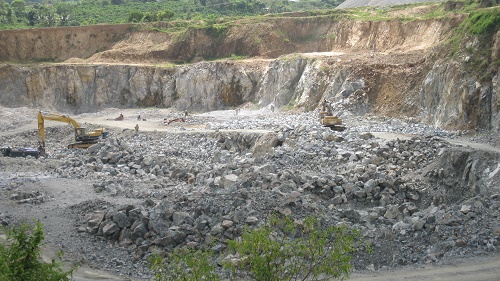A representative from PanNature suggested clearly defining the non-profit status of science and technology organizations to facilitate research, technology transfer, and application. This clarity would also enhance international collaboration and attract funding.

Poor supervision over mining allows many to get rich
A lack of transparency in exploiting natural resources has resulted in large amounts of revenues from mineral exploitation flowing into the pockets of individuals instead of State coffers.
Speaking at a recent seminar on promoting transparency in nature management held by the People and Nature Reconciliation (PanNature) and Oxfam in Hanoi, an expert noted that loopholes in the mining law have been utilized for private gains.
Pham Quang Tu, team leader of the Advocacy Coalitions Support Program, said that the 2010 Mineral Law specifies a more transparent mechanism, awarding mining rights to the highest bidders, but the reality is far from that point.
In addition, under the law, many mines can still be licensed without auction. The reality shows that many mines are handed to enterprises without undergoing auctions, according to Tu.
In addition, if mines are put up for auction, valuation is not done and those offering higher prices are allowed for exploitation. Vietnam currently does not make mineral valuation but only rely on the volumes enterprises exploit to collect taxes.
Therefore, Tu asked how the annual exploitation volumes of enterprises could be controlled.

Dang Hung Vo, former deputy minister of Natural Resources and Environment, said that Vietnam has a committee for assessing the exploitation volumes of enterprises but assessments are mainly made based on the reports of enterprises.
Another issue which, according to Vo, has not received enough attention is the lack of transparency in mineral exploitation, leading to deforestation and pollution, affecting residential communities.
From the aspect of economic growth, Tran Dinh Thien, director of the Vietnam Institute of Economics, said that land and minerals are being overexploited, as seen in vast areas of forest being chopped down to build hydropower projects or the excessive exploitation of sand in rivers.
Vietnam has maintained the growth model based on mineral exploitation and product outsourcing and assembly for too long, resulting in unsustainable and slow development, he added.
According to economic experts, it is now time to boost transparency in mineral exploitation to share benefits among relevant sides, promoting economic growth and reduce negative implications.
Senior economic expert Le Dang Doanh said that State officials and enterprises are those benefiting from the lack of transparency.
Therefore, issues like exploitation license, exploitation volume, budget payments and impacts on the environment and the society should be publicized and supervised under the Extractive Industries Transparency Initiative (EITI).
One of the principles to promote transparency is to create an effective management mechanism and cut red tape in management.



